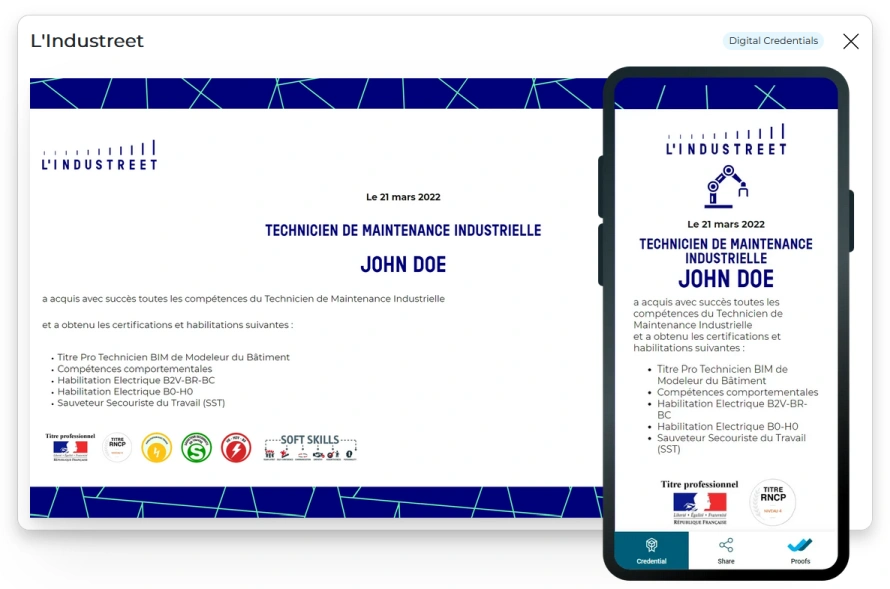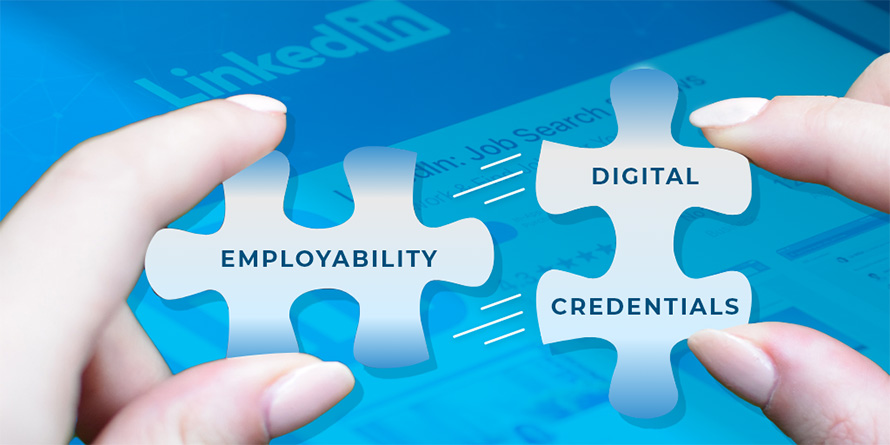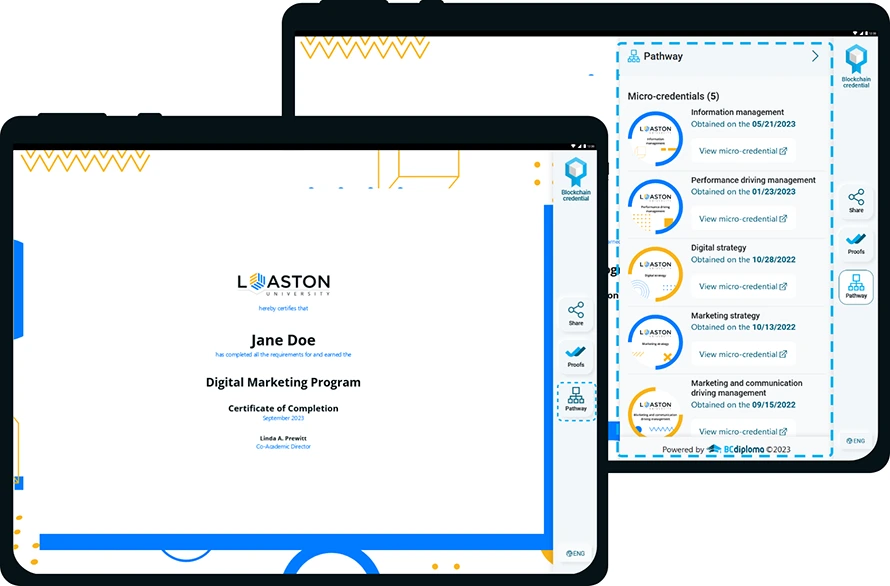In the competitive world of higher education, educational innovation is constantly sought after to meet the new needs of learners and the job market. Digital certificates, credentials, diplomas, and badges, are emerging as a key solution. These new digital formats are not just formal recognitions of skills and knowledge acquired; they also play a significant role in enhancing the learner experience.
Consider, for example, the dominant role LinkedIn has assumed in recruitment, professional exchanges, and career progression: it’s certainly time to consider that your learners’ experience includes publishing and sharing their achievements on this professional network!
But what exactly is a digital badge, certificate, or diploma?

A digital badge or certificate is a digital proof that certifies the acquisition of skills or the completion of courses by a learner. Unlike traditional diplomas, these attestations can be instantly shared on professional social networks, embedded in resumes or email signatures, thus offering increased visibility to the certified skills. Their digital format also ensures easy and quick verifiability, essential in today’s recruitment processes.
Boosting Employability

The first notable advantage of digital credentials, diplomas, and badges lies in their potential to boost learners’ employability. Thanks to the ease of sharing and the simplicity and reliability of verification, these digital tools significantly improve the visibility of the learner’s profile to recruiters. In an increasingly competitive job market, where distinguishing between candidates can come down to details, having an online, accessible, and valued portfolio of titles, diplomas, and skills becomes a major asset.
Facilitating International Mobility
Another crucial aspect concerns international mobility. In many countries, recruitment procedures or visa applications require the presentation of original diplomas. This is notably the case in European countries like Italy, Hungary, or Estonia, as well as China or Brazil. This requirement can represent a significant obstacle, given that nearly 41% of international students report having faced difficulties in providing these documents, often lost or damaged over time.
Digital credentials, with their tamper-proof nature and permanent accessibility, offer a practical solution to this problem… especially when they are multilingual, as offered natively by BCdiploma.
Enhancing Learner Engagement

Lastly, digital certificates, especially badges and micro-credentials, play a significant role in enhancing learner engagement. By recognizing every step of their educational journey, these tools help to clarify and valorize their progression, particularly in the form of the learner pathway, thus strengthening their motivation.
The learner pathway, rewarded by the attainment of badges and eventually a final diploma or digital certificate encapsulating all acquired skills, courses, or qualifications, is a powerful way to share the various stages of the academic and training curriculum with learners in a clear and engaging manner.
Digital certificates and badges thus position themselves as indispensable tools for higher education institutions keen on enhancing their learners’ experience. Through their ability to increase employability, facilitate international mobility, and engage students more deeply, they provide a suitable response to the contemporary challenges of education and the job market. By adopting these innovations, educational institutions are not just modernizing their practices; they are investing in their students’ future success.
